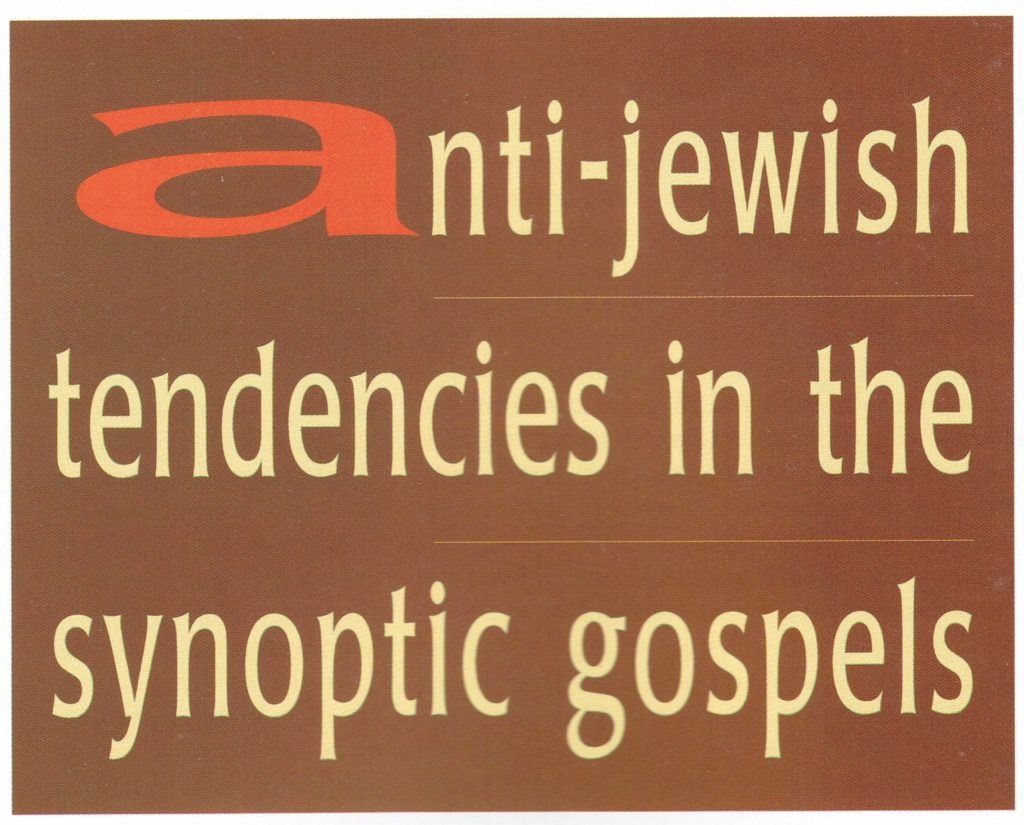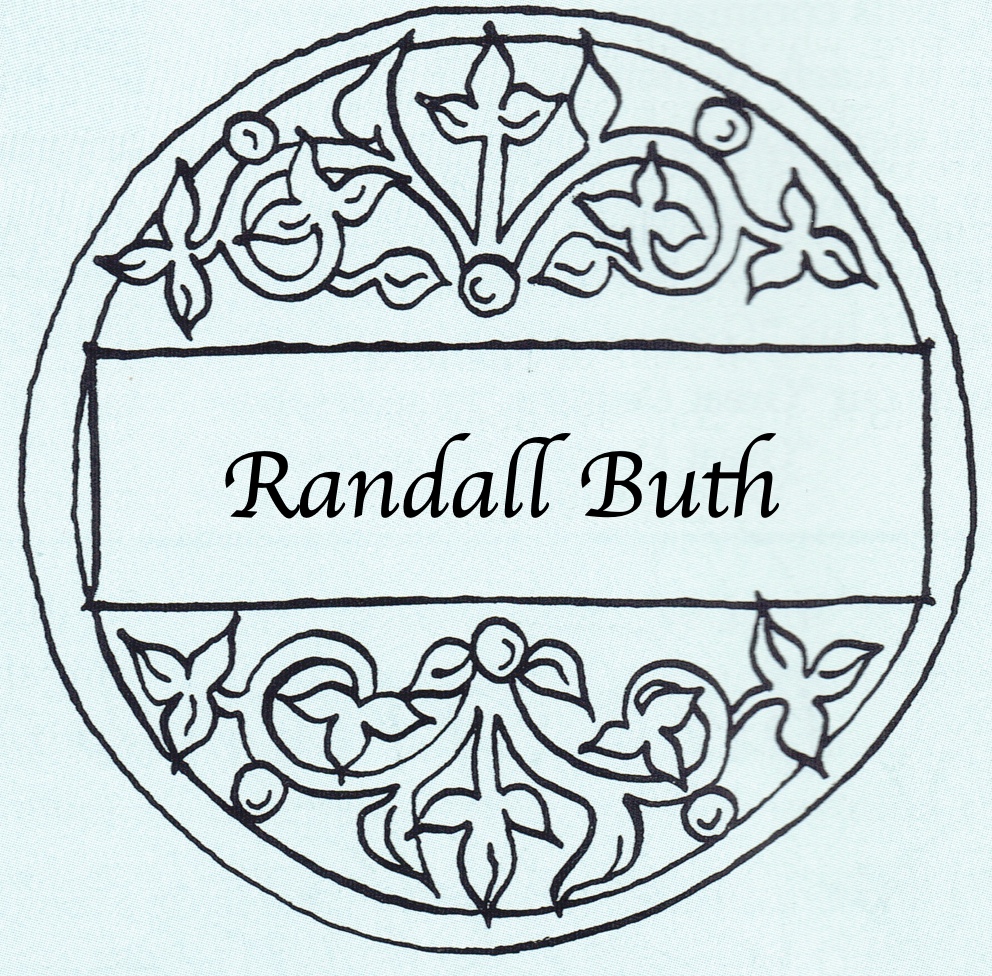Comment from David Montgomery (Montpellier, France ) that was published in the “Readers’ Perspective” column of Jerusalem Perspective 53 (Oct.-Dec. 1997): 8-9.
My concern stems from reading statements [in Steven Notley’s article “Anti-Jewish Tendencies in the Synoptic Gospels,”] such as:
1. “Lindsey…believed that the author of the ‘Gospel according to Matthew’ was neither the disciple Matthew nor the Matthew to whom Papias referred” (JP 50, p. 8).
2. “The beautiful Greek of Luke’s prologue (Lk. 1:1-4), for instance, testifies that the prologue is a later addition to the gospel story” (JP 50, p. 13).
3. “What we witness in Matthew 23 is the kernel of authentic sayings of Jesus. Yet, by reading the Matthean sayings beside their Lukan parallels we can often distinguish between the sayings in their original form and the work of a later Matthean reviser” (JP 51, p. 28).
4. “Matthew alters Jesus’ statement slightly but significantly” (JP 51, p. 30).
5. “The reviser of Matthew’s gospel….” (JP 51, p. 31).
6. “The gospel of Matthew, on the other hand, possesses a number of anti-Jewish statements that may be the work of a later Gentile scribe” (JP 51, p. 32).
My objection to these statements, and others I could have quoted, will, I suppose, place me amongst those modern Christians whose understanding of the inspiration of Scripture is relatively narrow and rigid. Nevertheless, I believe that in Scriptures such as John 14:26, 16:12-15 and Matthew 18:18-20, Jesus established the principle of apostolic authority—and authorship—of the New Testament Scriptures.
It seems to me that the governing thesis of the Jerusalem School, i.e., that the authentic teachings of Jesus must be “reconstructed” from our existing Gospels, contradicts this principle of apostolic authority. I understand that textual criticism is a necessary and complex procedure, since we do not possess the original apostolic autographs; however, I firmly believe that only by respecting the principles of inspiration laid down in the Scriptures themselves will we arrive at an understanding of the truth.
I would like to appeal to the members of the Jerusalem School to devote your energies to the illumination of the Gospel texts as we have received them, rather than to the pursuit of a Hebrew “Life of Jesus.” The former, which I believe to be your area of greatest strength, will bring untold blessing to the community of faith. The latter will, I fear, only lead to disappointment, deception and “quarrels about words” (1 Tim. 6:4).
David Bivin responds:
At JP, we appreciate our readers. They study hard to absorb the material that we produce. Many of them have made important textual discoveries themselves, or through their interaction with us, have caused us to make new discoveries. I am especially happy when readers present us with constructive criticism. This helps us to rethink our positions and attempt to communicate our ideas more clearly. Real scholars love it when others challenge their positions, or when an editor takes their unpublished articles and book manuscripts and “tears them apart.” Constructive criticism is a scholar’s life’s breath. Therefore, we were delighted to receive David Montgomery’s letter.
Randall Buth responds:
David Montgomery’s letter expresses a valid concern. Perhaps my perspective may help some JP readers to sift and to find what is good.
In general, I study a Gospel text in two directions. First, in common with Lindsey, I want to know whatever I can about the historical origins of the saying and its meaning. That is always open-ended—we cannot know ahead of time where the details will lead—but we can trust God to lead us and take care of us along the way. Second, I want to know the text’s canonical meaning. The text has a meaning within a canonical document and I believe that God wants us to work with every and any such text to understand his purposes and his truth: with the document, with the text and with Jesus Christ. (See my “Pursuing Righteousness,” Jerusalem Perspective 32 [May-Jun. 1991]: 11-12, 15, and “Inspiration, History and Bible Translation,” Jerusalem Perspective 36 [Jan.-Feb. 1992]: 3-7, for why such distinctions are necessary.) That is the obligation and benefit that a belief in full (plenary) inspiration gives me. Not every Christian or Jew accepts an inspiration permeating and defined by a canon. I believe that God is also involved in the whole process, including the fixing of the canons.
Now to the points raised in the reader’s letter:
- Lindsey believed that Papias probably referred to the disciple Matthew who wrote a Hebrew biography that formed the basis of Luke’s Gospel, one of the sources that Luke mentions. That shouldn’t be problematic for any theory of inspiration. At a minimum, it puts apostolic authority behind Luke and any who use Luke.
- Likewise, the style of Luke’s prologue testifies loudly to the care and quality of Luke. It is self-evident that the prologue was written later than any sources Luke used. But the frequent unpolished Greek throughout Luke’s Gospel shows an author who respected his sources highly, often transmitted them literally, and refused to transform their humble style into the Greek eloquence of which he was capable.
- A writer is allowed to summarize, rephrase and regroup words when trying to report three or four years of teaching in a document that can be read in two hours.
- See 3.
- “Revisers” are always hypothetical and to be taken with a grain of salt. Christians and the Church have rightly accepted the final product as God’s Word however many layers might have occurred between the events reported and the final document.
- The Scriptures cited reflect one possible position on the Bible’s view of inspiration. The reader has extended Jesus’ statements to situations beyond their context and used them in an exclusive manner (“This way, and no other way”) rather than an inclusive one (“Some ways in which the Church will be helped”). Whether the final author of Matthew was a Gentile is technically irrelevant to questions of inspiration. The style of Matthew’s author strikes me as from the land of Israel (see my “Matthew’s Aramaic Glue,” Jerusalem Perspective 28 [Sept.-Oct. 1990]: 10-12) and Jewish, and occasional anti-Jewish tones need to be viewed from within the first-century situation. We have records of differing, first-century Jewish groups speaking harshly of those “in error.” See, for example, Mishnah, Yadayim 4:7, 8: “The Sadducees say, ‘We vehemently object to you, O you Pharisees, because you….’ The Pharisees say, ‘We vehemently object to you, O you Sadducees, because you….’” What is shameful and must be strongly opposed is the way in which at various times in history the New Testament’s seemingly anti-Jewish statements have been misinterpreted and misappropriated by Gentiles, and too often, Christians, in order to arouse or justify hatred against the Jews. God will hold us responsible (see Gen. 12:2-3).
“Reconstructing original sayings” is a necessary exercise that comes from carefully comparing the different wording in the Gospels of what is often the exact same saying. I believe that God, in his wisdom, has created such a situation for our own good. Our Gospels are living witnesses, not artificial creations of superficial unity.
The last point in David Montgomery’s letter is always good to remember: The task of interpretation is never finished until the canonical document is explained and related to the community of believers in an edifying manner. We all are trying to do that with the light God has given us.



































































































